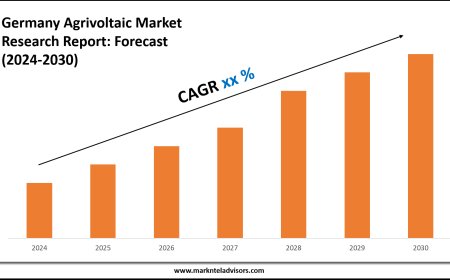How Fleet Logistics Support Can Transform Business Efficiency
Fleet Logistics Support is no longer just about moving goods—it's about optimizing the entire supply chain, enhancing responsiveness, and fueling operational performance.

In the fast-paced world of modern business, operational efficiency is a cornerstone of competitiveness. Whether youre in manufacturing, retail, e-commerce, or construction, the smooth functioning of your logistics systems significantly impacts service delivery, cost control, and customer satisfaction. Fleet Logistics Support plays a pivotal role in this ecosystem, offering a framework that enhances coordination, minimizes delays, and ensures seamless movement of goods and services.
So, how can Fleet Logistics Support improve operations? Lets dive into the core aspects that reveal its transformative potential.
1. Streamlined Transportation Planning
Fleet logistics support focuses on planning the most efficient routes and schedules. Advanced GPS and routing software now allow logistics managers to plan vehicle movements with pinpoint accuracy. This minimizes fuel consumption, reduces delivery time, and ensures better utilization of fleet resources. The result? Lower operating costs and higher on-time delivery rates.
2. Enhanced Real-Time Visibility
One of the greatest advancements in fleet logistics is real-time tracking. Businesses can now monitor vehicles, drivers, and cargo throughout the delivery cycle. This transparency builds trust with clients and allows proactive responses to any delays or disruptions.
3. Improved Inventory Management
Fleet logistics support is tightly integrated with warehousing and inventory systems. By coordinating deliveries with stock levels, businesses can practice Just-In-Time (JIT) inventory managementreducing the need for large storage spaces and lowering inventory holding costs.
4. Predictive Maintenance for Fleet Health
A well-maintained fleet is crucial for uninterrupted operations. Fleet logistics systems can incorporate predictive maintenance alerts based on mileage, engine diagnostics, and performance trends. This minimizes breakdowns and unplanned downtime.
5. Data-Driven Decision Making
Every movement within a logistics framework generates valuable data. With fleet logistics support, this data can be analyzed to identify inefficiencies, predict future demand, and optimize fleet utilization. Reports on driver behavior, fuel efficiency, and delivery times offer actionable insights.
6. Greater Customer Satisfaction
Reliable logistics translates to timely deliveries and accurate order fulfillmentkey drivers of customer satisfaction. With the help of fleet logistics systems, businesses can improve their delivery accuracy and customer communication.
7. Sustainability and Environmental Responsibility
Efficient logistics reduces fuel consumption and carbon emissions. Modern fleet systems often support eco-routing, idle time tracking, and hybrid/electric vehicle integration. By adopting these practices, companies can align operations with green goals.
8. Driver Performance and Safety Monitoring
Fleet logistics tools can monitor driver behaviorspeeding, harsh braking, or long idle periodsand provide feedback or alerts. This not only improves road safety but also reduces liability and wear-and-tear on vehicles.
9. Seamless Integration with ERP and CRM Systems
Fleet logistics doesnt operate in isolation. When integrated with Enterprise Resource Planning (ERP) and Customer Relationship Management (CRM) systems, logistics data enhances forecasting, order processing, and customer service strategies.
10. Scalability and Flexibility
As businesses grow, fleet logistics systems can scale effortlesslyadding more vehicles, routes, or locations without a dip in performance. Cloud-based logistics solutions especially offer high scalability and centralized control.
Final Thoughts
Fleet Logistics Support is far more than just dispatching vehiclesits a strategic pillar of operational success. From route optimization to predictive analytics, and from customer satisfaction to environmental sustainability, the benefits are comprehensive and measurable.
By embracing advanced fleet logistics support systems, businesses can unlock new levels of agility, cost efficiency, and competitive edge in a demanding market. Whether you're a small business or a global enterprise, the right logistics framework can be the game-changer that propels your operations into the future.






























